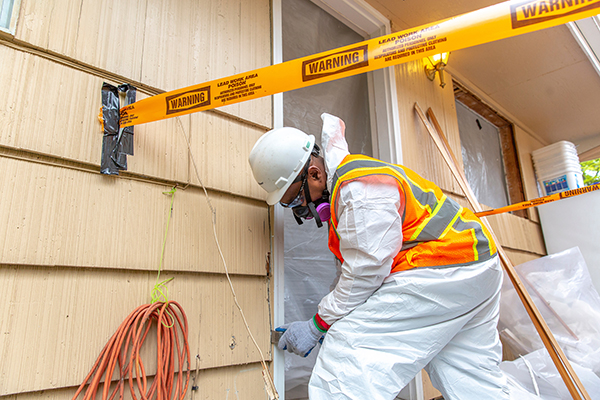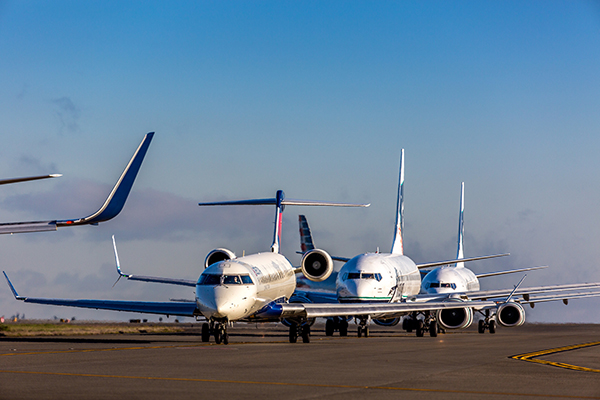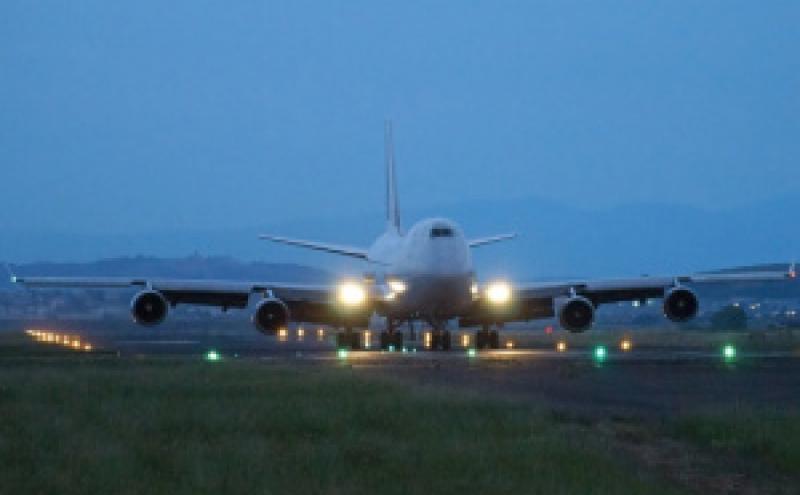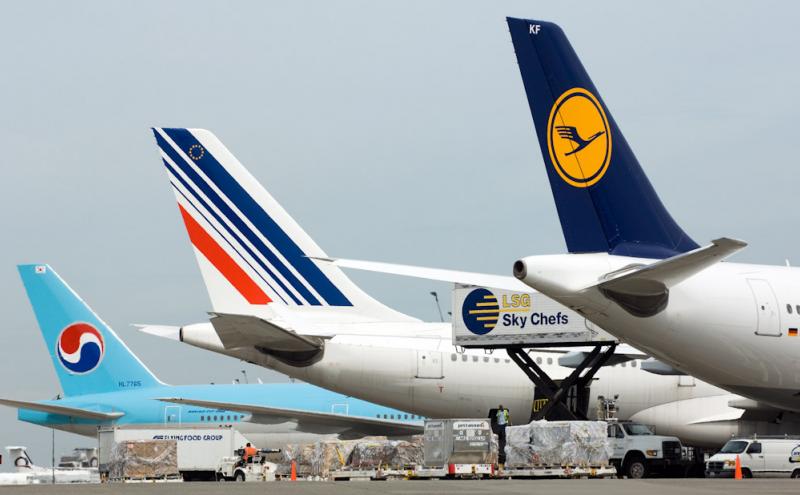
The Port of Seattle is committed to proactively responding to community concerns about aircraft noise surrounding SEA Airport. The Port works to achieve results through its long-established sound insulation program and through partnering with the community on the SEA Stakeholder Advisory Round Table. Also known as StART, this unique collaboration between local cities, the airport, airlines, and the FAA is identifying new and creative changes to policies, equipment, operations, and technology that can reduce aircraft noise. This voluntary effort is not only leading to documented operational change. In 2023 StART organized its first joint airport and community advocacy trip to Washington, D.C., where members urged federal lawmakers to adopt new policies and investments aimed at reducing noise and pollution in near-airport communities.
Over 9,400 homes insulated
The Port's noise insulation program has a long track record, dating back to 1985. Since then, the program has insulated over 9,400 single-family homes around the airport. The program has recently extended its reach and is now insulating apartments, places of worship, and condominium complexes. In addition, in 2002, the Port and the Federal Aviation Administration (FAA) implemented a $100 million agreement to insulate Highline School District schools, and 10 of the 15 identified schools are now complete.

Reducing late night noise
Sound insulation is an important tool for addressing community aircraft noise concerns. However, the Port understands that mitigation strategies alone cannot address all community concerns. The Port also wants to encourage actions that would reduce aircraft noise at the source. This is where StART comes in. StART was developed in partnership with the cities that surround SEA to serve as a forum for discussion, information sharing, and most importantly, as the place where all parties, including the air carriers and FAA, can propose, develop, and implement practical aircraft noise reduction initiatives.
Soon after StART’s inception in 2018, members identified late night noise concerns as a key priority for the round table. Two StART programs were launched to address these concerns.
In 2019, the Port and FAA agreed on a voluntary Informal Runway Use Plan to minimize use of the airport’s Third Runway during late night hours. Late night operations on the Third Runway, the runway closest to the community, have dropped dramatically since the plan’s implementation thanks to the FAA’s attentiveness to the plan. Third Runway use has dropped from an average of 12 late night landings per night in 2018 to an average of less than one late night landing per night in 2023.
Also implemented in 2019, the Late Night Noise Limitation Program is a voluntary initiative created to reduce late night noise by incentivizing air carriers to fly at less noise-sensitive hours or transition to quieter aircraft. The program reports on a quarterly basis which air carriers are exceeding established noise thresholds during the late night hours. In 2021, the program achieved its first significant success when EVA Air made the switch to a quieter aircraft during the late night hours.
Quieter takeoffs and landings
In 2022, as part of ongoing efforts to seek out new and innovative ways to address community aircraft noise concerns, StART reviewed recommendations to address ground noise. Ground noise is a persistent source of noise that airplanes create when operating on the airfield. Two recommendations have now become part of the airport’s master record: language discouraging pilot overuse of reverse thrust and language promoting pilot use of continuous taxi to takeoffs.
Reverse thrust is used by pilots to decelerate an aircraft when landing. It is also a major source of airfield noise. In coordination with the StART membership, language was developed that discourages the use of reverse thrust at all times of the day, beyond what is necessary for safety. The updated, voluntary language was included in the airport’s master record in January 2023.
Continuous taxi to takeoffs take advantage of the aircraft’s forward momentum which results in takeoff power being applied further from the runway end and less expected aircraft noise for nearby communities. The operation typically occurs during less busy time periods on the airfield when takeoff queuing is minimal. Voluntary language is expected to be added to the airport’s master record later this summer.
These two voluntary noise reduction measures are now included as part of a StART air carrier outreach campaign with the belief that increased awareness will lead to heightened pilot acceptance and observance.

Advocacy at the federal level
All of StART’s aircraft noise initiatives are voluntary because an airport’s authority to address community noise concerns is extremely limited. Beyond monitoring, aircraft noise regulations and policy fall solely under the FAA’s jurisdiction, which is why StART has made federal policy advocacy such a priority. New tools, authorities, resources, and approaches are needed to give the airport, the near-airport community, and the FAA a greater role in shaping and implementing efforts that directly address community concerns about aircraft noise.
In response, the Port and the six StART cities (Burien, Des Moines, Federal Way, Normandy Park, SeaTac and Tukwila) developed a list of federal actions that they believe will help achieve those goals. In particular, the Port and the StART cities have focused on seven federal policy priorities, including providing federal funding for qualifying homes to receive secondary sound insulation, giving the Environmental Protection Agency (EPA) greater authority to address aircraft noise, and requiring the FAA to reevaluate its noise metrics and thresholds. In late April, the Port, local state legislators, and elected officials from the StART cities traveled to Washington DC to advocate for StART’s priorities. The delegation met with Washington’s Congressional Delegation and the FAA and left encouraged that many of its priorities have a real opportunity to achieve significant progress in 2023. In fact, four of them were included in the 2023 FAA Reauthorization bills recently released by the House and Senate. In addition, the Port partnered with Rep. Smith to share our collaborative work on this issue in a recent Seattle Times editorial.
The Port and its StART partners will continue to push its two-prong approach to address community concerns about aircraft noise with a focus on examining everything that an airport can influence while pursuing changes in federal law and regulations.
StART has achieved many successes over its nearly five years of existence, and partnership, innovation, and advocacy are the driving factors for our progress. The six StART cities of Burien, Des Moines, Federal Way, Normandy Park, SeaTac and Tukwila, Alaska Airlines and Delta Air Lines, and the FAA are all going above and beyond in this partnership. When everyone’s involved, our neighborhoods get a little quieter.









